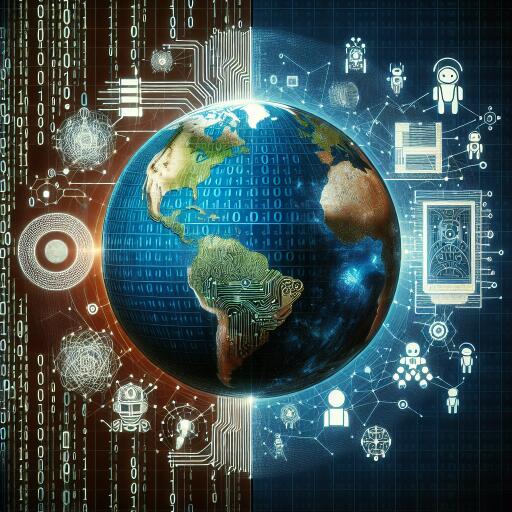Exploring the Enduring Value of Programming in the Age of AI
In an age dominated by the rapid advancements in artificial intelligence (AI), a pressing question surfaces: Does programming still hold its value in the burgeoning AI era? This inquiry not only probes into the future of jobs but also examines the place of creators in a world increasingly reliant on AI. Despite the transformative impact of AI in automating operational tasks, the burgeoning state of AI sciences underscores the continuing importance of programming knowledge for AI development, maintenance, and innovation.
At its core, programming remains integral to all computer technology, serving as the foundation upon which AI is built. The process of coding involves crafting a sequence of commands designed for interpretation and execution by a computer, aiming to achieve specific outcomes or tasks. The intricate algorithms and data structures that form the backbone of AI technologies are meticulously conceived, developed, tested, and implemented by skilled computer programmers.
AI technologies, encompassing machine learning, natural language processing, and robotics, are engineered to complement human intelligence. They support humans in tasks that are otherwise challenging without technological aid. Although AI can perform a myriad of tasks, it lacks the creativity and depth that humans bring to programming. It is the programmers who breathe life into AI, perfecting the code that powers these intelligent models and weaving AI into various systems.
The evolution of AI is inextricably linked with advancements in programming. New languages and tools are continually developed to enhance AI capabilities. Python, for instance, has emerged as a popular choice for AI and data science professionals thanks to its simplicity and extensive library resources. Programmers must adapt and evolve alongside these technological shifts to stay relevant.
With the rise of AI, programmers bear the responsibility of ensuring its ethical application. They incorporate principles of privacy, fairness, and transparency into the design and structure of AI systems, safeguarding the ethical integrity of these technologies.
Addressing the future challenges and opportunities posed by AI requires a multidisciplinary approach. Engineers, data scientists, ethicists, and professionals from various fields must collaborate to navigate the complexities of AI development. In this collaborative landscape, developers play a crucial role, translating complex coding rules into tangible products and solutions.
While AI excels at solving specific problems, it cannot address the diverse needs of every organization or business scenario. The demand for custom software development remains high, necessitating programmers to craft tailored solutions that navigate current challenges. Moreover, innovation often stems from human ingenuity, with programmers pushing boundaries and exploring beyond established limits.
The nurturing of future AI professionals demands mentors and educators with extensive programming experience. These seasoned programmers are invaluable, imparting their knowledge and shaping the next generation of AI pioneers.
In conclusion, programming retains its pivotal role within the AI ecosystem, facilitating the development and optimization of AI systems. As AI technologies progress, the importance of programmers does not wane but instead becomes increasingly critical. Programmers are the architects of our digital future, and their expertise will continue to be in high demand as we delve into the intricacies of an AI-driven world. The symbiotic relationship between AI and programming signifies a mutual growth trajectory, where AI handles vast data and tasks with efficiency, but it is the programmer who innovates, creates, and ensures the ethical stewardship of these systems. As such, the future of AI promises not only cost-effectiveness but also a world that is equitable and respectful of human values.










